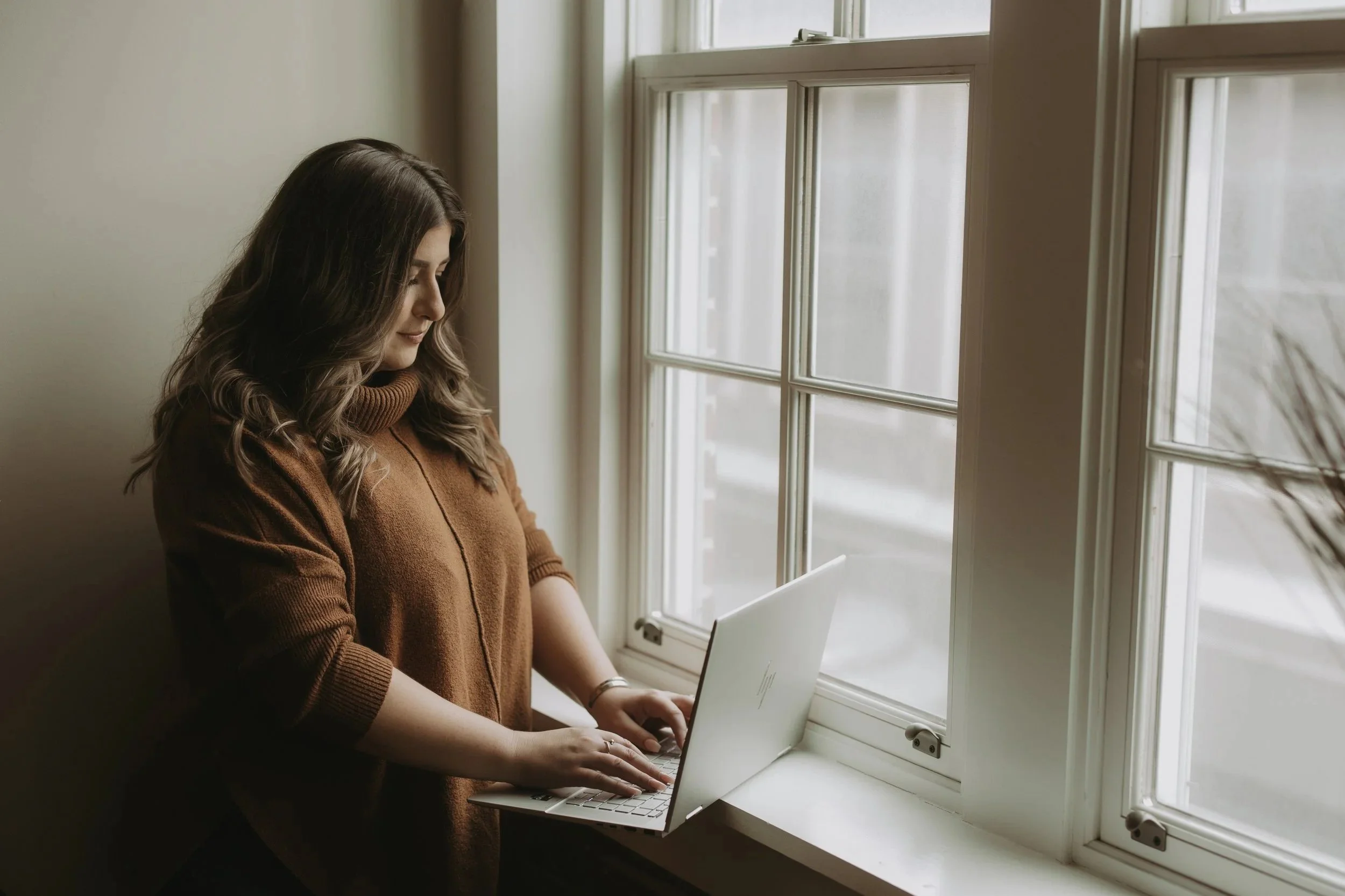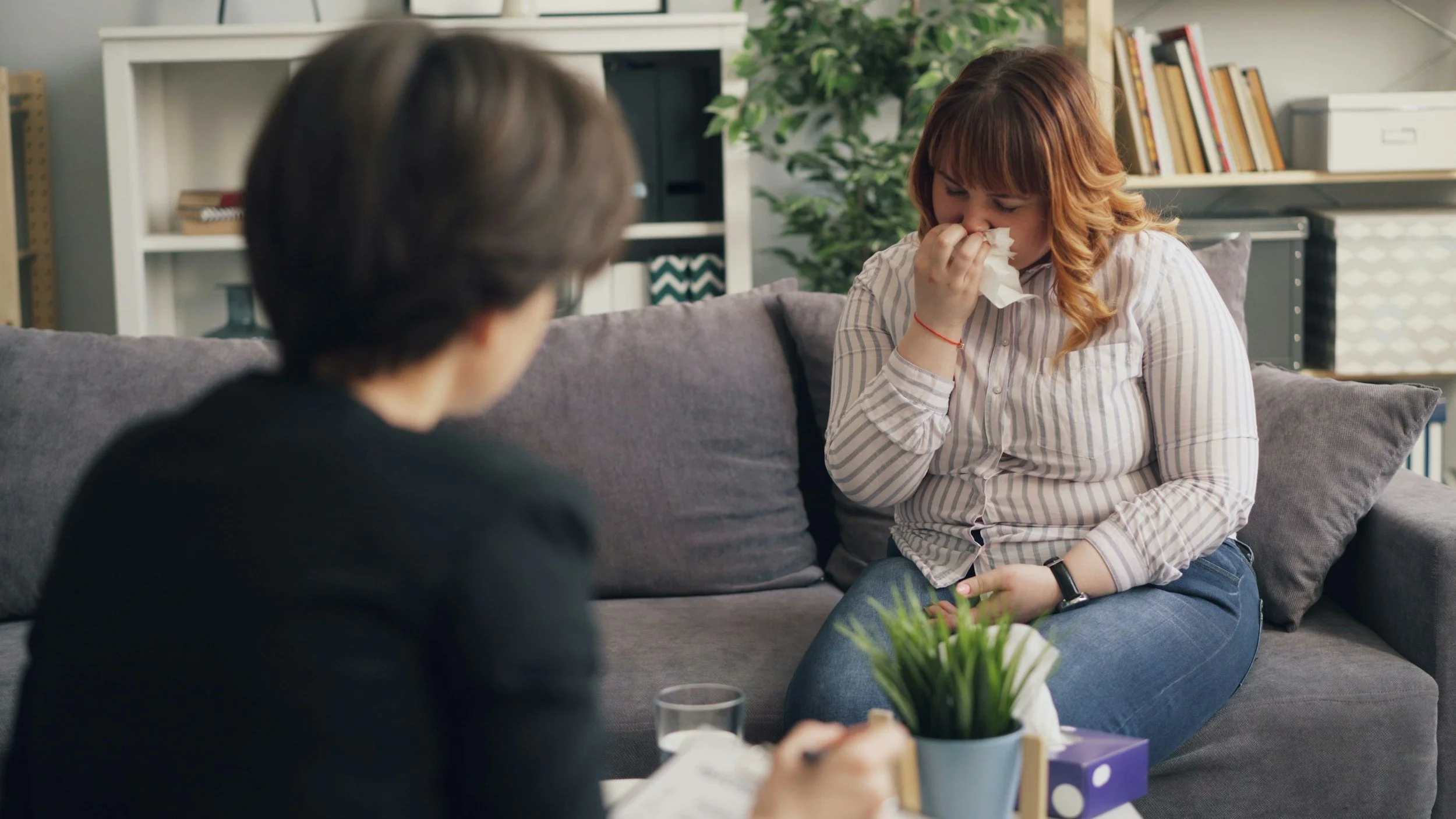Eating Disorder Therapy for Adults in Western MD and Baltimore areas
You are not alone.
I’ve worked with many people who feel like they’re fighting a battle no one else can see. On the outside, they may seem like everything is under control—but inside, it’s exhausting. Thoughts about food, your body, or exercise can take over, leaving little space to just be yourself. I can help you navigate that struggle and find relief.
Food rules, guilt, and comparisons don’t have to run your life.
Maybe it shows up as endless rules around eating—what you can have, when you can have it, how much you need to make up for later.
Maybe it’s the guilt that creeps in after a meal, or the panic if plans change and suddenly your routine feels out of control.
Some days it’s the mirror that feels unbearable.
Other days it’s the comparisons to teammates, friends, or strangers on social media that leave you questioning your worth.
These patterns can feel like they define you—but they don’t have to. I can help by exploring what’s fueling these patterns and creating strategies to break free from them.
When self-criticism never stops, it can feel impossible to rest.
It’s exhausting—mentally, emotionally, and physically. You want freedom, but it feels impossible when the self-criticism is so loud, when perfectionism tells you you’re never enough, or when the thought of loosening your grip feels terrifying. Even if no one else notices the battle, you know how much it’s taking from you.
-
I know it can feel frustrating when people assume this, but eating disorders aren’t about willpower. They’re real mental health conditions influenced by many factors. Recovery isn’t about doing everything perfectly—it’s about having support and tools that actually help you feel more at ease in your body.n text goes here
-
You might hear this a lot, but it’s not true. People of all genders, ages, and life experiences can struggle with eating disorders. There’s no “look” you need to have. You might seem like you’re handling everything on the outside, but still be facing real challenges—and that’s completely valid.
-
I hear this one a lot, too. Eating disorders often show up around food, but they’re usually about deeper things—things like self-worth, anxiety, control, or perfectionism. Therapy helps you get to the root of those patterns and build a healthier relationship with yourself.
-
It’s common to wonder this, especially if you’ve tried before. But therapy really can help. With evidence-based support, you can learn self-compassion, understand your patterns, and gain practical tools to make lasting changes. You don’t have to go through this alone—I can help you get there.
Common Misconceptions About Eating Disorders
Imagine life with more peace, freedom, and energy.
Now imagine what it might feel like to live differently: to go out to eat without scanning the menu in panic, to enjoy movement without it being about punishment, to look in the mirror without spiraling into self-criticism.
Imagine reclaiming energy and headspace for the things that actually matter to you—relationships, passions, goals—without food and body image taking center stage.
Recovery isn’t about perfection.
I’ve worked with people at all stages of recovery, and I know it’s not about doing everything perfectly—it’s about having support and tools that actually help.
I can help by creating a safe space where you can explore what’s going on beneath the surface, step out of the cycle, and move toward a gentler, freer relationship with food, your body, and your life.
It’s your turn to reclaim your life—and I’m here to help you do it
Here’s how I can help
Ease food guilt. Build strategies to quiet the mental chatter and take the stress out of eating.
Soften self-criticism. Learn ways to replace harsh inner dialogue with self-compassion.
Break free from perfectionism. Release the pressure to always perform, control, or “get it right.”
Build healthier coping tools. Find new ways to handle stress, emotions, and overwhelm.
Reconnect with your body. Explore movement and self-image in ways that feel supportive, not punishing.
Recovery is a process, and support makes it possible.
Recovery isn’t about doing everything perfectly—it’s about having the right support along the way. Whether you’re just beginning the process or have been working at it for years, therapy can give you a safe place to begin.








